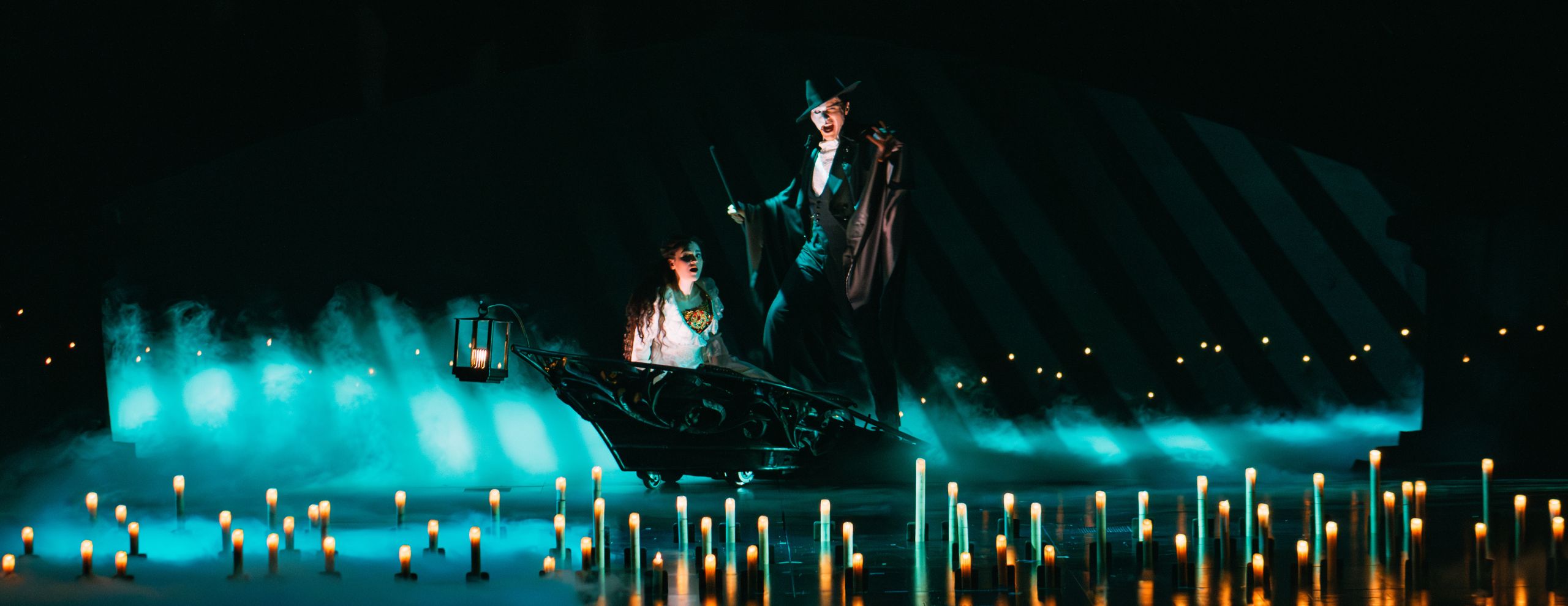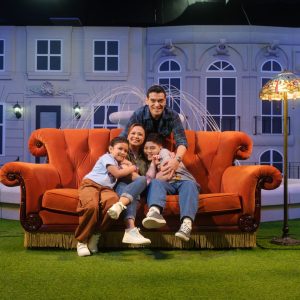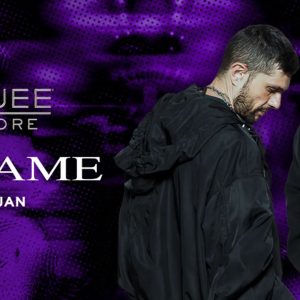My fascination with the theatre started when I was a little girl, perusing my parents’ library of CDs until I found the curious cover of the 1988 West End recording of The Phantom of the Opera; which later became the soundtrack of my 10-year-old days.
While I never had the privilege of being amongst the first to watch its very first staging in Singapore, I did catch its subsequent run in 2007 at the Esplanade, and have since watched it more than four times — if you count the film version.
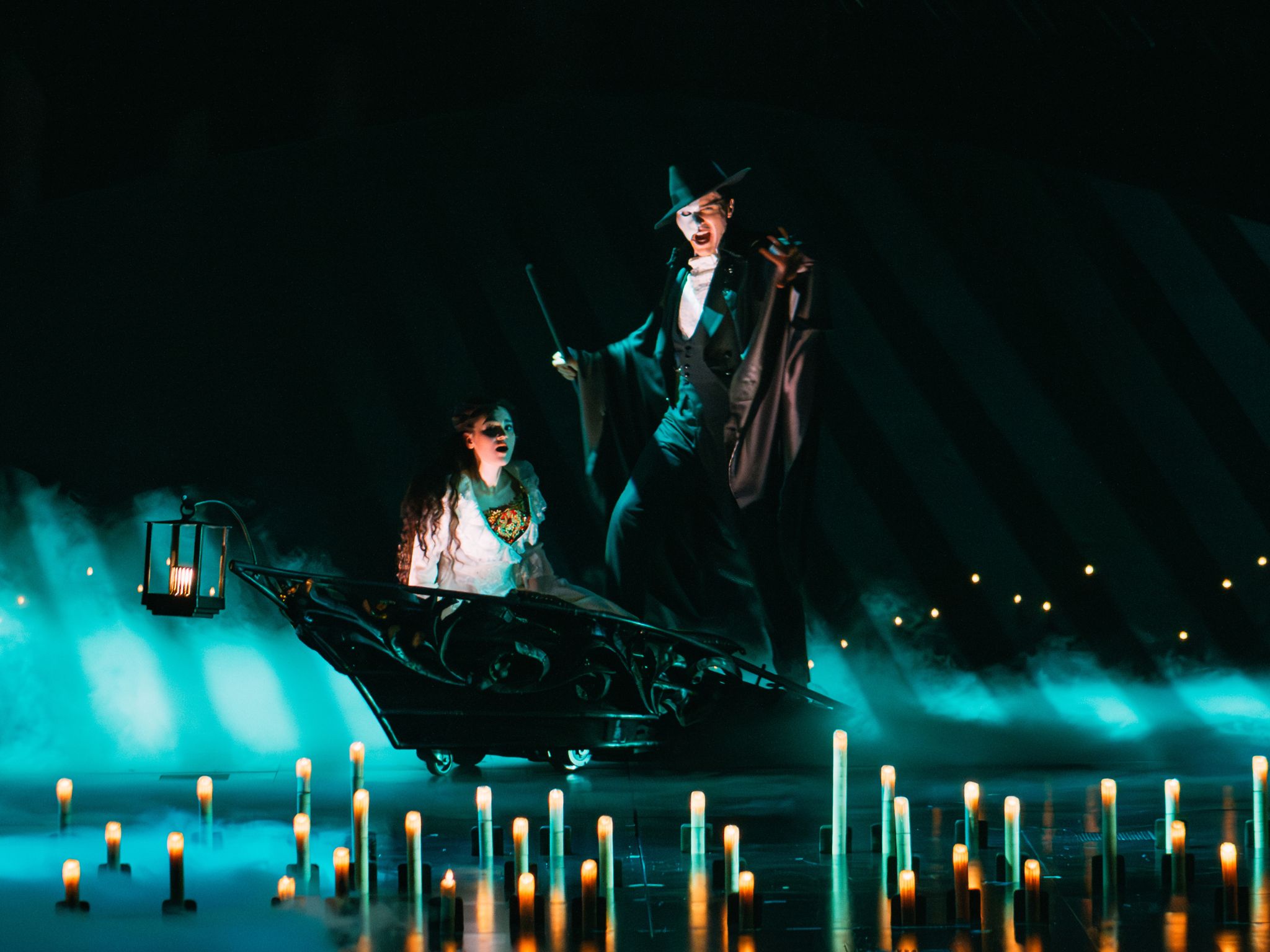
For those unfamiliar with this classic, the Phantom of the Opera is based on the classic novel Le Fantôme de L’Opéra by Gaston Leroux which tells the tale of a disfigured musical genius who haunted the depths of the Paris Opera House.
Mesmerised by the talent and beauty of a young female soprano, he makes her his protégé and falls fiercely in love with her. His obsession ultimately takes a turn for the worst when he finds out that she is love with another; setting in motion a series of events where jealousy, madness and passions collide.
As with every opening of the Phantom of the Opera, the chandelier scene remains one of the core highlights of the musical because it is one of the climatic moments that pulls you in to the story.
Unfortunately, during my performance, the scene lost its magic due to the disjointed feel of the overture and the chandelier, especially when the chandelier was supposed to rise to the ceiling to begin the turn back in time.
Instead of an immediate ascend, the chandelier was kinda awkwardly floating on stage for 30 to 40 seconds before it very slowly made its way to the ceiling, which instantly brought me back to reality instead of 1800s Paris.
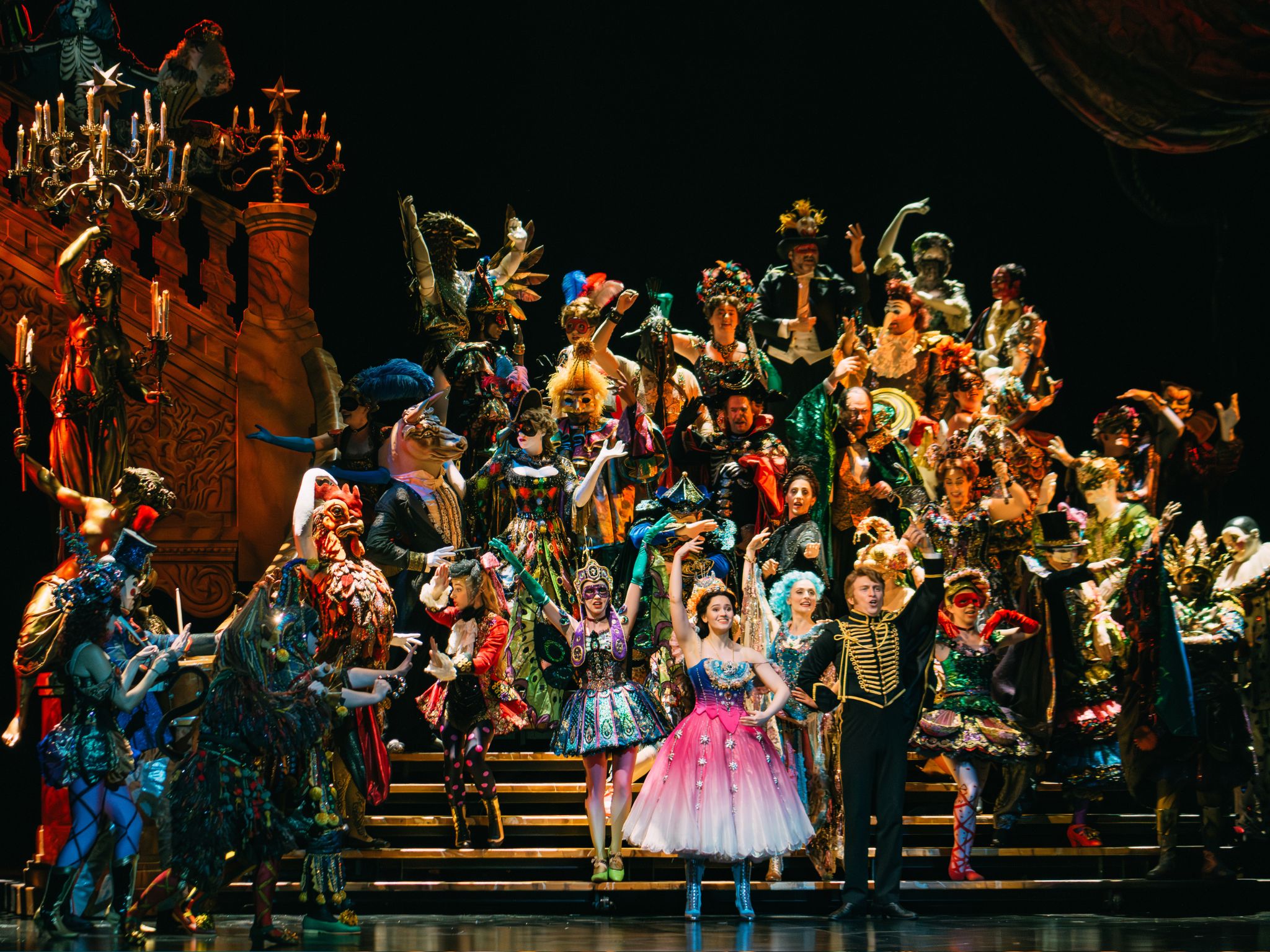
The awkward technical difficulty also seemed to have repeated itself during the boat scene in the song, “The Phantom of the Opera”, where there was an empty stage despite the actors singing. During that 30 to 40 seconds, I could see heads craning just to see if they had missed something on stage, and some even turned behind, thinking that maybe the actors were in the audience.
This seemingly buffered event happened yet again at the climatic end of Act One, which could be attributed to the weight of the chandelier, but instead of a slow descend of the chandelier, it would have been great if an alternative setting was used to relay this crucial moment in the musical where the audience is already expecting something frightening to happen.
So, instead of an at-the-edge-of-my-seat moment, I felt the anxiety and fear of a crashing chandelier dissipate as I waited for the lights to come on for intermission.
Though the staging was slightly disappointing because of the hiccups I witnessed, the show redeemed itself in its performers who did a fantastic job. From the principal cast to the ensemble in their supportive roles, everyone was outstanding in their own ways, giving the audience something to look at in every scene, especially during Masquerade.
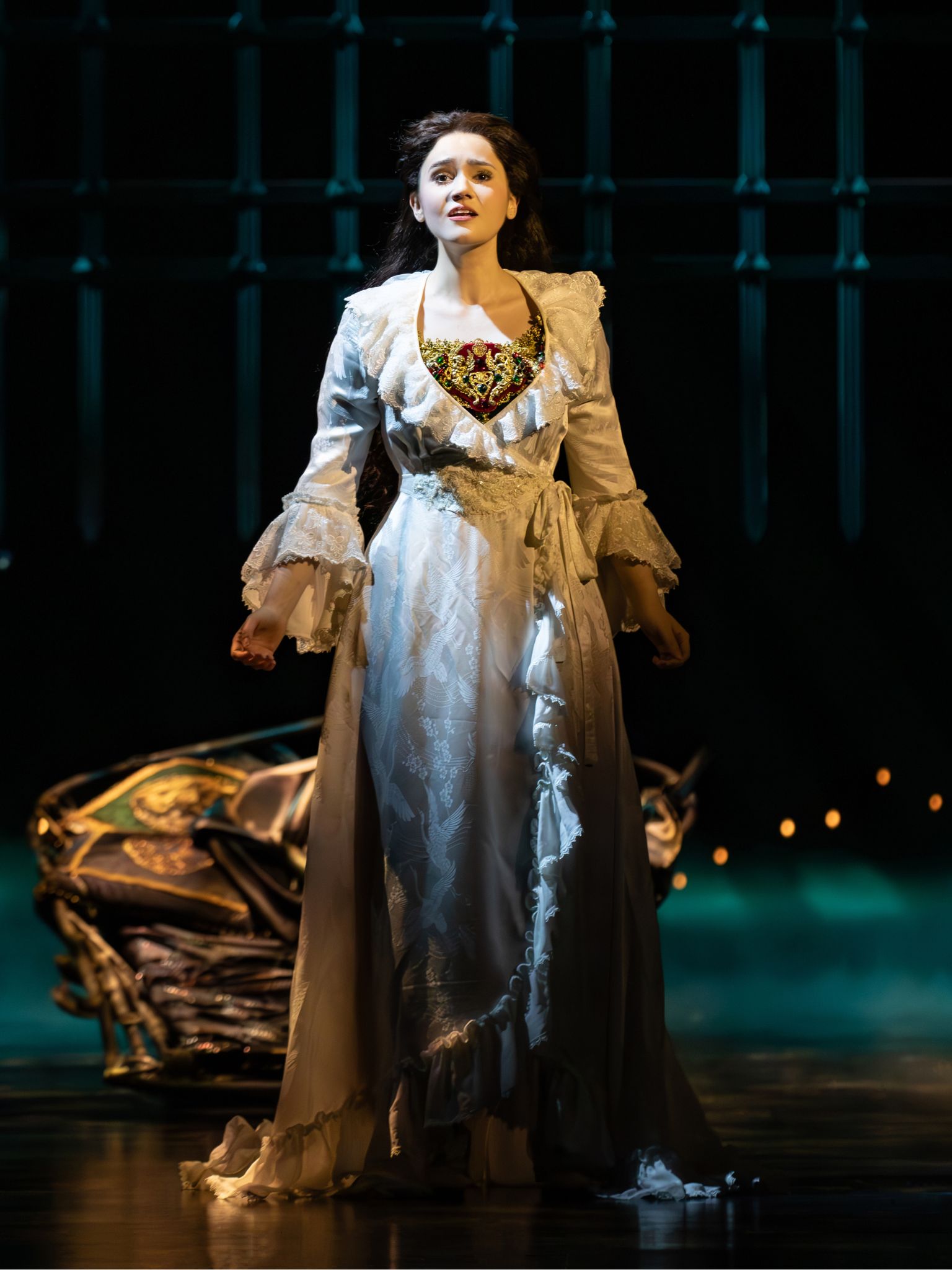
The ones who stood out for me though, were without a doubt the two leads, Grace Roberts and Ben Forster, who played Christine Daaé and the Phantom respectively.
As someone who looks to Sarah Brightman’s portrayal as the golden standard of any Christine Daaé, I have never found anyone quite as similar to her until I witnessed Grace Roberts performed “Think of Me”.
Now, I’ve heard variations of this song which had been modified to complement the various performers’ vocal range and it was always disappointing to hear as the song, to me, was a way to showcase the vocal prowess of Christine Daaé (but also I’m just a stickler for the OG version).
So, when it came time for the vocal trills in “Think of Me”, Grace knocked it out of the park with an almost identical rendition of Sarah Brightman’s performance, which turned me into that awestruck 10-year-old who was listening to the soundtrack for the first time.
Needless to say, she impressed me even more when she easily tackled that insanely difficult portion of “The Phantom of the Opera”, which I dubbed the dolphin octave, and even gave me goosebumps during the process!
When it came time for my favourite song, “Wishing You Were Somehow Here Again”, Grace performed it with such softness and emotion that it truly captured this profound longing in Christine Daaé for her father’s support and guidance in this rather complicated time of her life.
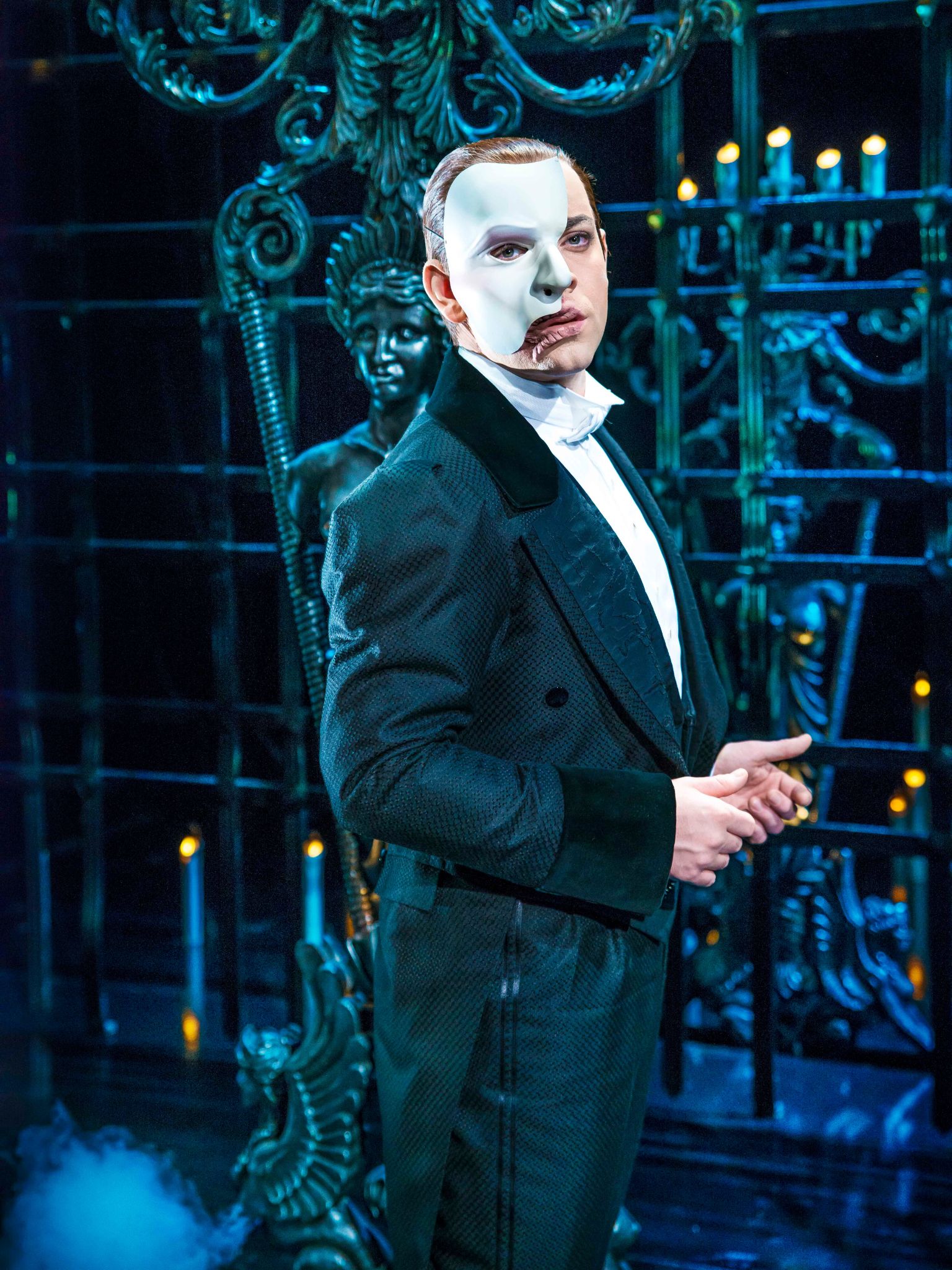
The first time we were introduced to Ben Forster as the Phantom, I am not shy to admit that I did not initially like his portrayal. This is largely due to the fact that I’ve been more accustomed to a calmer Phantom (shoutout to Michael Crawford!) that had more control in his voice, but Ben’s Phantom came across more manic and emotional, especially during “Music of the Night”.
Instead of singing to Christine calmly and melodiously, I felt it came across a little frightening, almost like he was singing at her and not to her.
I held on to my reservations about Ben’s Phantom and only let it go when it finally came time for Act Two, when I finally understood why his portrayal came across so intensely.
Though I may never know if this was a creative choice on his part, I definitely liked what Ben did with the Phantom; taking a more raw and human approach with the character that showcased the fragility of the Phantom and the desperation he felt to feel wanted and accepted by his muse.
This was evident in the nuanced way Ben controlled his vocals, going from gentle to forceful, and in how he acted on stage, from belly-crawling on the floor like a crazed stalker to his shaking hands that mirrored his bursting emotions — all of which added a new layer to the Phantom that I have not seen before.
With that said, I’m glad that the Phantom of the Opera is back on stage in Singapore again and despite the technical issues I experienced, this is definitely a good musical to catch and I hope it will help to entrance the next generation of Phantom fans.

